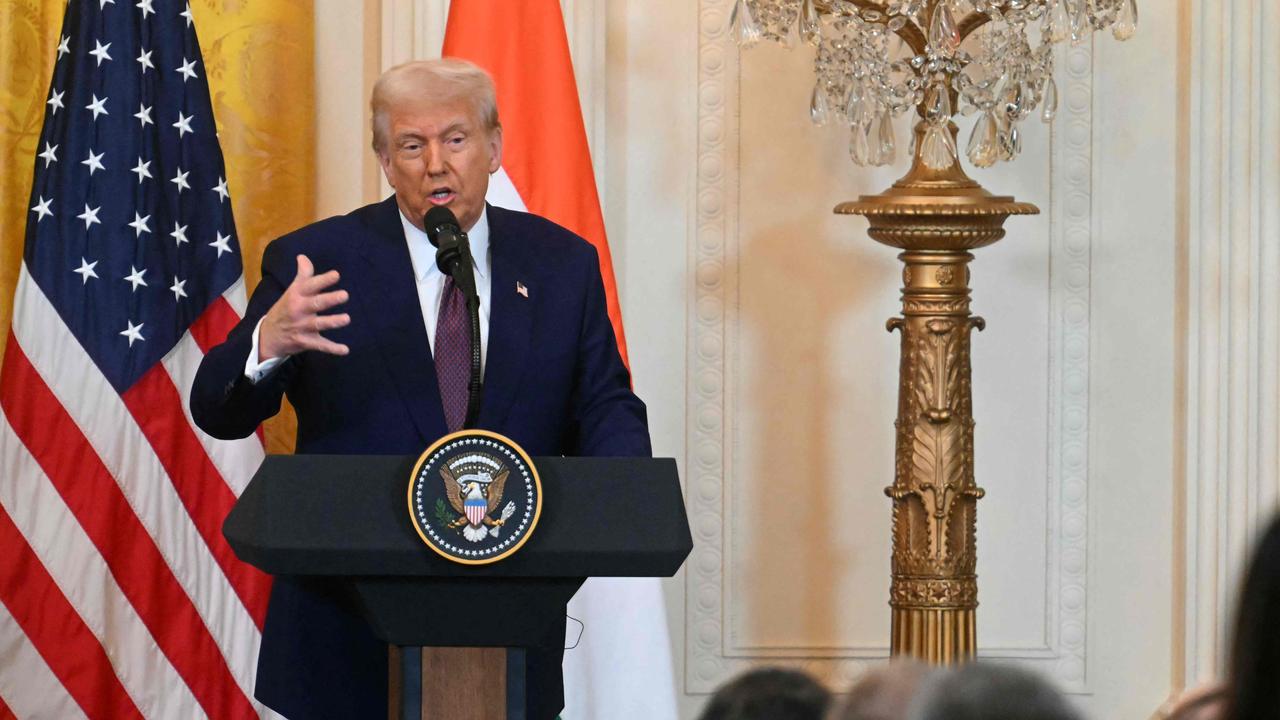French MPs oust Michel Barnier government in no-confidence vote
For the first time in over 60 years, the National Assembly approved a no-confidence motion against the incumbent Michel Barnier government, a historic move which hurled the country further into political uncertainty.
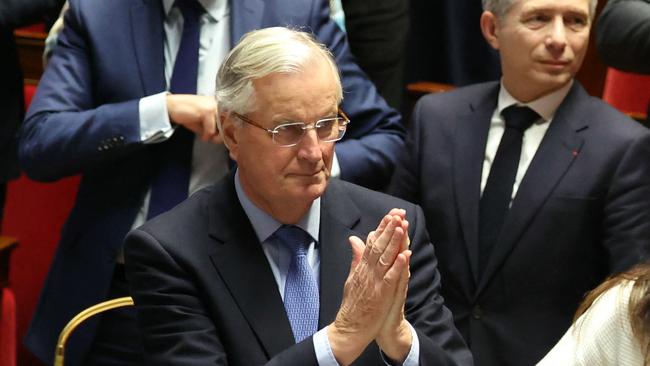
French president Emmanuel Macron is under to pressure to resign and will be forced to employ special measures so that a technocratic government can continue to keep the country afloat after a no-confidence vote collapsed the French government on Wednesday night.
In a dramatic vote the parliament ousted the government of Michel Barnier, after the former European Union Brexit negotiator had tried to force through a 60bn euro debt-reducing budget without parliamentary approval.
This puts the Eurozone’s second largest economy in political limbo and Mr Macron will have to try and find a palatable new prime minister to be able to bring together the three disparate political factions of the current French parliament.
Immediately after the vote the left wing alliance called for Mr Macron, who is in situ until May 2027, to resign in order to break the political impasse and force fresh elections.
“We are now calling on Macron to go,” far left leader Mathilde Panot said.
Marine Le Pen’s populist National Rally party had opposed Mr Barnier’s budget, with Ms Le Pen describing it as dangerous and unfair and she said the vote was made “to protect the French”.
Ms Le Pen said Mr Macron was now under significant pressure, however she stopped short of calling for his resignation saying it was an issue for the president himself to decide.
Mr Macron has promised to have a new person installed by the weekend to coincide with the opening of the restored Notre Dame, which will be attended by the incoming US president Donald Trump.
But given that it took him nearly a month to find Mr Barnier, that task will not be easy. Fresh parliamentary elections cannot be held until next July and in the meantime the French parliament remains unworkable. Mr Barnier warned that any future French government faces tough decisions after the country’s debt has spiralled in recent years. He said the issues “won’t disappear by the magic of a no-confidence vote” and added, “this reality will come back to haunt any government whoever it is.’’
In the vote, 331 MPs out of 577 backed the no confidence motion put forward by the left wing alliance and which was supported by the right wing factions resulting in the first fall of a French government for 62 years.
Barnier’s rapid ejection from office comes after snap parliamentary elections this summer which resulted in a hung parliament with no party having an overall majority and the far-right holding the key to the government’s survival.
Speaker Yael Braun-Pivet confirmed Barnier would now have to “submit his resignation” to Macron and declared the session closed.


Macron flew back into Paris just ahead of the vote after wrapping up his three-day state visit to Saudi Arabia, an apparent world away from the domestic crisis.
He strolled earlier Wednesday through the desert sands of the Al-Ula oasis, an iconic tourist project of the kingdom, marvelling at ancient landmarks. After landing, he headed direct to the Elysee Palace.
On Tuesday, Macron accused Le Pen’s far-right of “unbearable cynicism” in backing the motion.
No new elections can be called within a year of last summer’s vote, narrowing Macron’s options.
Laurent Wauquiez, the head of right-wing deputies in parliament, said the far-right and hard-left bore the responsibility for a no-confidence vote that will “plunge the country into instability”.
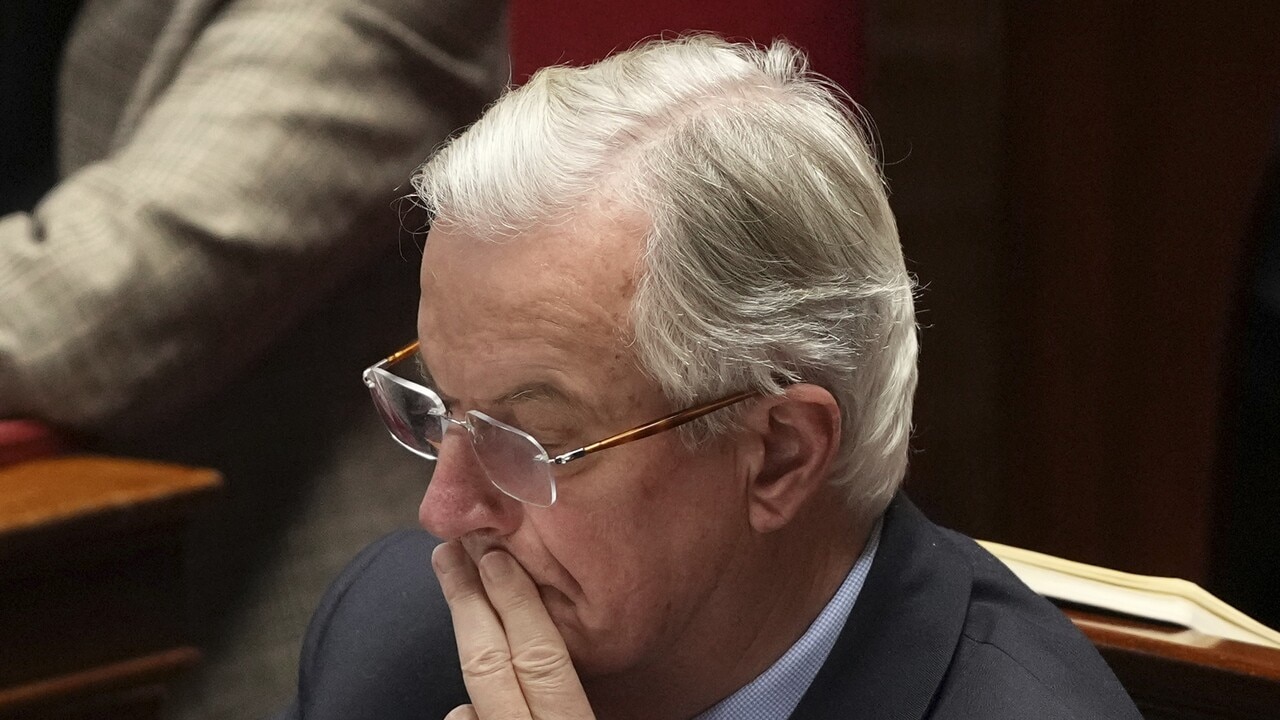
- ‘His failure’ -
Some have suggested Macron himself should resign to break the impasse. But Macron rejected those calls, saying such a scenario amounted to “political fiction”.
“It’s frankly not up to scratch to say these things,” Macron said during his trip to Saudi.
Eric Coquerel, a hard-left MP, said the motion against Barnier sounded the “death knell of Emmanuel Macron’s mandate”.
With markets nervous and France bracing for public-sector strikes over the threat of cutbacks that will shut schools and hit air and rail traffic, there is a growing sense of crisis.
The unions have called for civil servants, including teachers and air traffic controllers, to strike on Thursday over separate cost-cutting measures proposed by their respective ministries this autumn.
“His failure,” was left-wing daily Liberation’s front-page headline, with a picture of Macron, whose term runs until 2027.
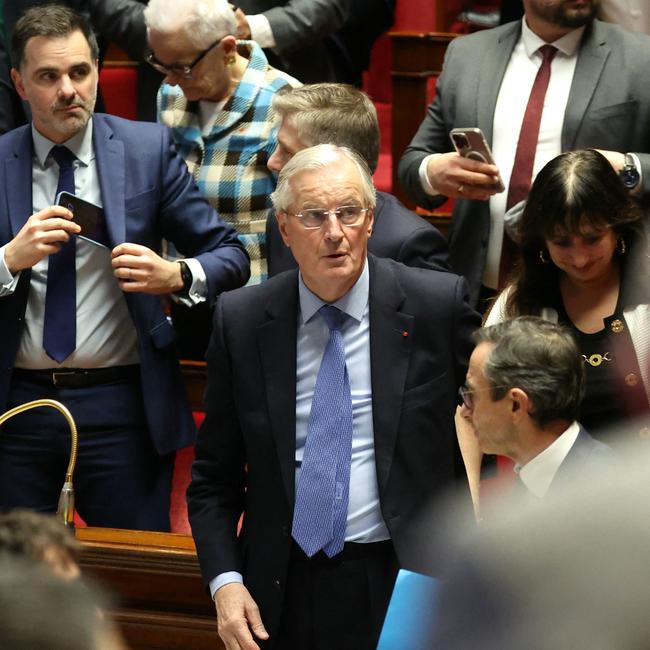
- ‘Shattered strategy’ -
But in an editorial, Le Monde said Le Pen’s move risked upsetting her own supporters, such as retirees and business leaders, by toppling the government.
“In the space of a few minutes, she shattered the strategy of normalisation she had consistently pursued,” the daily said.
Some observers have suggested that Le Pen, 56, is seeking to bring down Macron before his term ends by ousting Barnier.
Le Pen is embroiled in a high-profile embezzlement trial. If found guilty in March, she could be blocked from participating in France’s next presidential election.
But if Macron stepped down soon, an election would have to be called within a month, potentially ahead of the verdict in her trial.
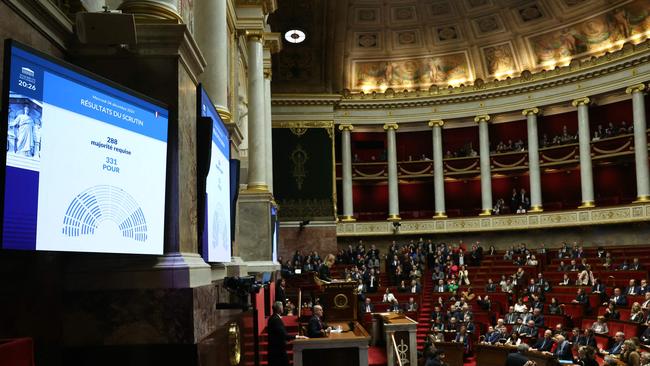
Candidates for the post of premier are few and far between, but loyalist Defence Minister Sebastien Lecornu and Macron’s centrist ally Francois Bayrou are possible contenders.
On the left, Macron could turn to former Socialist premier and interior minister Bernard Cazeneuve, a contender in September.
Macron is minded to appoint the new premier rapidly, several sources told AFP. It was the first successful no-confidence vote since a defeat for Georges Pompidou’s government in 1962, when Charles de Gaulle was president.
The lifespan of Barnier’s government is also the shortest of any administration since the Fifth Republic began in 1958.
With AFP





